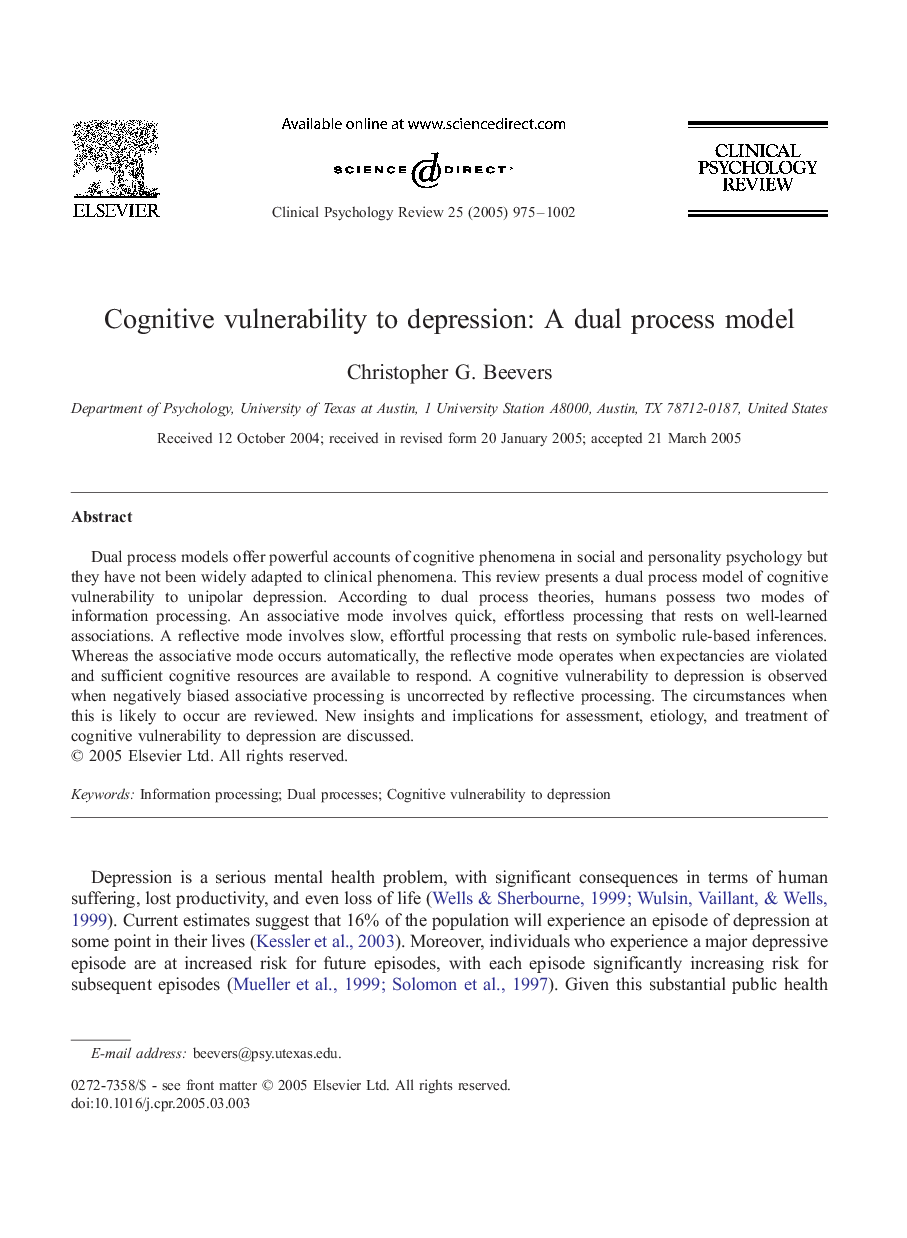| Article ID | Journal | Published Year | Pages | File Type |
|---|---|---|---|---|
| 10445933 | Clinical Psychology Review | 2005 | 28 Pages |
Abstract
Dual process models offer powerful accounts of cognitive phenomena in social and personality psychology but they have not been widely adapted to clinical phenomena. This review presents a dual process model of cognitive vulnerability to unipolar depression. According to dual process theories, humans possess two modes of information processing. An associative mode involves quick, effortless processing that rests on well-learned associations. A reflective mode involves slow, effortful processing that rests on symbolic rule-based inferences. Whereas the associative mode occurs automatically, the reflective mode operates when expectancies are violated and sufficient cognitive resources are available to respond. A cognitive vulnerability to depression is observed when negatively biased associative processing is uncorrected by reflective processing. The circumstances when this is likely to occur are reviewed. New insights and implications for assessment, etiology, and treatment of cognitive vulnerability to depression are discussed.
Keywords
Related Topics
Health Sciences
Medicine and Dentistry
Psychiatry and Mental Health
Authors
Christopher G. Beevers,
